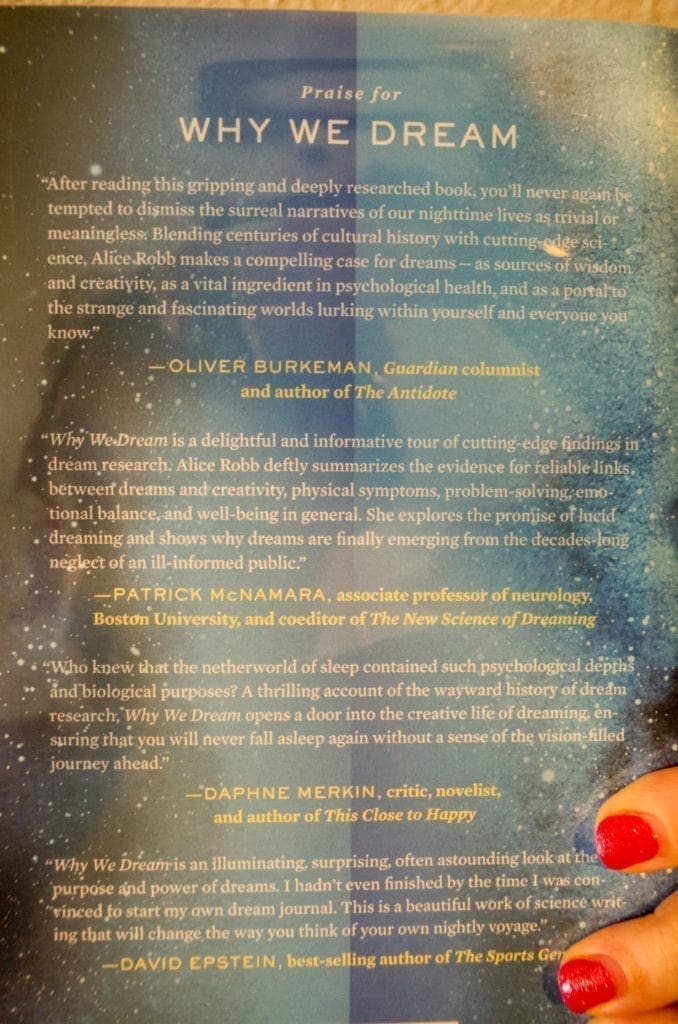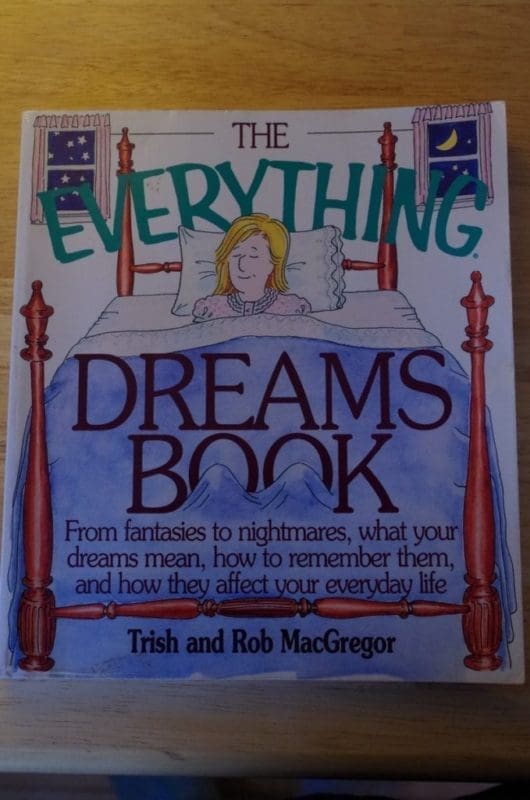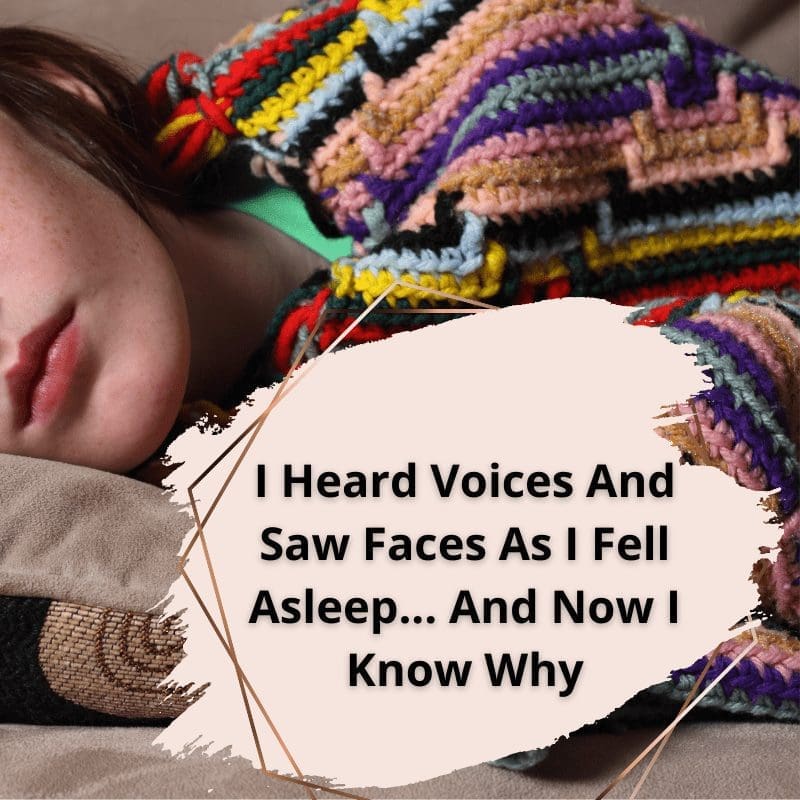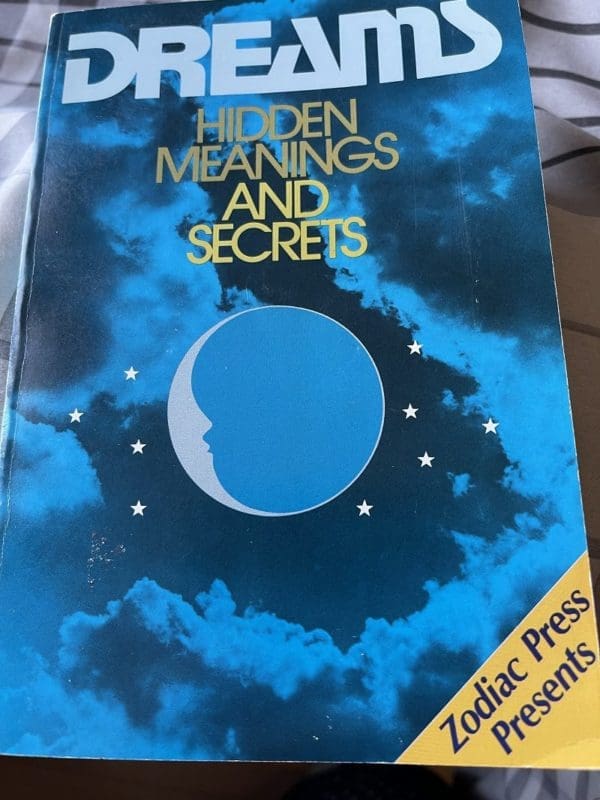Last Updated on September 27, 2020 by Kari
So many people don’t give a crap about their dreams. They view them as random or not important, but I’ve long believed that they are extremely important to our lives. In early December, I was looking up something about dreaming and came across an article that talked about a new book called Why We Dream, which was published in November of 2018. It didn’t take me long to go out and get it, but it did take me a while to read, which I will talk about in this review. In the end, I enjoyed the book and the insight it provided.

It Was A Hard Read For Me
Granted, I haven’t been reading that much in the past few years. I’ve been busy taking courses! But, I figured I would be able to burn through this book in at least a week because it’s about something I’m interested in.
It took me just over a month and a half to finish it.
I’m not sure if it is the way the book is set up, the editing, the author, or just my lack of ability to sit down and focus for too long, but it took me a while to get through this. There was always something ‘better’ pulling my attention away.
Regardless, I was still interested in the book and read here and there and eventually finished it.
What You Learn In Why We Dream
Alice Robb walks the walk. She has participated in dream groups, practiced lucid dreaming, and enjoys the fact that she is consciously aware that things are happening in her life during the nighttime.
The history of dreams and how they’ve been used and explored is covered in Why We Dream. You learn how dreams were once popular, why their popularity diminished, and how certain people valued them along the way, even though they were no longer as popular as they once were.
I saw one review on how Why We Dream wasn’t focused around peer-reviewed research, and that’s true. But I don’t think it was supposed to be written in that way.
The author did a lot of research into the history of dreams and the research gone into dreams throughout history.
The book contains a lot of insights into dreams as well as information about dream researchers that I had never heard about.
I was able to relate to these people who valued their dreams. It was interesting to see that so many people place a lot of value on their dreams as I do.
You will learn about dream enthusiasts and scientists like Eugene Aserinksy, who discovered REM after spending hours studying the eyelids of sleeping subjects.
You will learn about Montague Ullman, who founded the Dream Laboratory in Brooklyn, New York, and was a huge advocate for sharing dreams. I thought it was cool that one of his studies had thousands of people at a Grateful Dead show attempt to send an image to someone sleeping in his lab. They sent an image of a man in a lotus pose with bright chakras along his spine, and the man in the lab dreamt of a man in midair and mentioned something about a spinal column.
You will learn how people have used dreams to indicate how things were going in their own life. For instance, Maya Angelou knew her writing was on the right track when she dreamed of discovering a skyscraper under construction and scaling it.
Things like nightmares, dream groups, lucid dreaming, and diagnosis through dreams are discussed.
This information will appeal to someone who is interested in their dreams and wants to delve further into them and know more about how their dream life can impact their waking life.
The Only Thing That Annoyed Me About The Book
There was something that threw me off a little. OK, it annoyed the heck out of me as someone who has transitioned from vegetarian to vegan.
Apparently, Alice Robb was a vegetarian for most of her life, until she decided that she might be missing something because meat seemed popular. In other words, she wanted to try eating meat. So her friends planned a ‘meat party’ for her to ease her into eating meat.
She wrote in Why We Dream that she never felt an affinity with animals and didn’t have a real justification for her vegetarian diet. And she claims her dreams helped her prepare to eat meat.
I understand that dreams can help you prepare for something, but what she said is just so frustrating for me.
I try to accept everyone’s lifestyle, but when someone says they don’t feel an affinity with animals, it makes me question their character.
It’s interesting how when you become annoyed with the writer, it becomes much harder to listen to what they are saying. Perhaps this had a lot to do with why it took me so long to read the book. It was always lingering in the back of my mind.
Why We Dream Gave Me Some New Reality Checks For Lucid Dreaming
Interestingly, I haven’t been having a lot of lucid dreams in the past 6 months or so. I’ve wanted to have them, but I haven’t been able to spot something in my dreams that would cause me to check whether or not I was dreaming or awake. Dead relatives, old homes, and weird scenarios all seemed normal to me in my dreams. Even, one night, when a skeleton and an evil goblin were talking, I didn’t question whether or not I was dreaming.
But, once I hit the chapter on lucid dreams, I was able to have a lucid dream very quickly. The night after I started the chapter on lucid dreaming, I realized all the showers were actually big toilets in my dream – which seemed weird to me – and I was able to do my reality check and get lucid.
But, I added something that I learned from this book – jumping up and down as a lucidity check – which is why I think I was able to have a lucid dream after so long. I haven’t been doing reality checks for months and months, but the jumping up and down thing really stuck in my mind after I read about it.
Apparently in your dreams, when you jump up and down, you will often fly, and that’s an obvious indicator that you are dreaming. So, after I realized that showers shouldn’t be toilets, I checked my hand and realized my pink nails (I currently have them painted pink) changed into green nails, which told me I was dreaming. Then I started jumping up and down occasionally to keep myself in check and lucid. And it worked really well!
That turned into the longest lucid dream I’ve ever had. I would jump a few times and then, suddenly, I would be hovering in the air instead of going back down, or I would fly up a bit. I did this every time I felt myself losing my lucidity. It kept me lucid for a very long time.
Why We Dream Made Dreams Even More Important To Me
The best thing this book did for me was to reinforce my respect for dreams. I haven’t missed a day in my dream diary since I started reading this book. And I’m remembering my dreams in ways I haven’t been able to do before. My recall is very detailed.
In short, Why We Dream by Alice Robb confirmed my belief that dreams are very important, and has reinforced my need to keep a dream journal, pay attention to my dreams, and make my dream life as important as my waking life.
If you are interested in dreams and how they play a part in your life, I would recommend this book. You can find it on Amazon, in your nearest bookstore, or possibly in your library.


